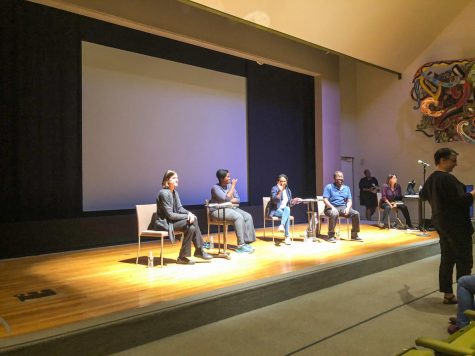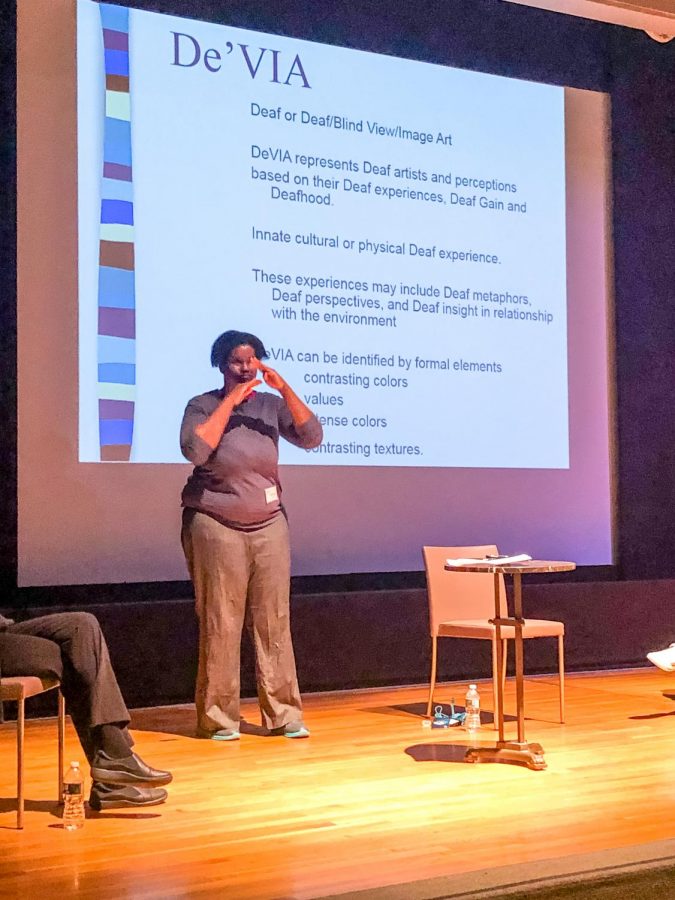With language tours, performances and informational networking, deaf culture was celebrated at the Museum of Fine Arts’ third annual American Sign Language night.
September is International Deaf Awareness Month, and the MFA’s event on the 25th took place during the last week of the month, coinciding with the International Week of the Deaf, created in 1958 in Rome by the World Federation of the Deaf (WFD).
The free event was designed to create a networking opportunity and to spread awareness of issues in the deaf/hard of hearing community, as well as to educate those who don’t identify as either.
The evening featured many events, including a performance from the dance group DEAFinitely, a discussion and Q&A led by a panel of advocates and educators for the deaf community, and information tables.
The issues discussed included the disconnect between deaf youth and the elderly, a lack of engagement opportunities for deaf youth, as well as hearing children born into deaf families. One point of focus was how the availability of clubs and opportunities available to deaf youth is on the decline.
“We are seeing a drastic [amount] of language deprivation within deaf youth,” said panelist Elbert “EJ” Joseph, a Boston-area activist and actor.
Joseph said various clubs for deaf youth have closed due to lack of participation and funding, including Deaf Children’s Theatre. Between 1965 and 1994 the theater was home to five groups: The Little Theater of the Deaf; the International Center on Deafness and the Arts; Imagination State; Seattle Children’s Theater with a deaf youth drama program; and Wheelock Family Theater’s PAH!, according to “Deaf Culture: Exploring Deaf Communities in the United States” by Irene Leigh, Jean Andrews and Raychelle Harris
“We need to see more theater in deaf schools [and] in programs for deaf youth because that would encourage more diversity, encourage more cultural exposure and inclusion and that would help to promote the use of ASL and the learning of ASL as a language,” said Boston University and Gallaudet University alumni, Shana Gibbs. “What we want the hearing world to know is that our community struggles with wider society and the frames that are put upon us.”

The panel discusses deaf culture and the evolution of deaf culture at the Museum of Fine Arts
The deaf/hard of hearing community works to advocate for their struggles within the community and the world outside of it. When it comes to partnering with the hearing world, they are open to active communication, so long as that communication is done in a respectful manner.
“We are a cultural and linguistic minority,” Gibbs said. “We are interested in partnering [with the hearing community] in ways that are respectful — but as a cultural community and not being framed as a disability community or group.”
Events like the MFA’s ASL night are an opportunity to expose different cultures and groups of people with one another. Event opportunities available in Boston are prosperous and can offer a way to branch out and earn a new perspective on the world.
“The more people come to events like this, the more we are able to educate the hearing community,” said Samantha Castro, a volunteer at the event.













